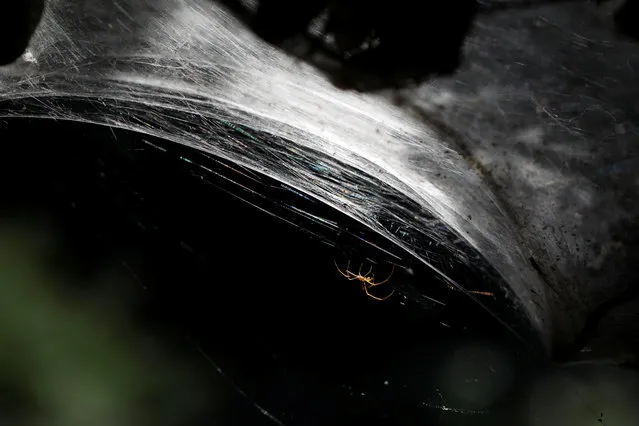
A long-jawed spider (Tetragnatha) weaves a spider web over sections of the vegetation along the Soreq creek bank, near Jerusalem, Israel on November 7, 2017. Millions of long-jawed spiders created the webbing that envelops the forest, a phenomenon rarely seen in the Middle East. (Photo by Ronen Zvulun/Reuters)
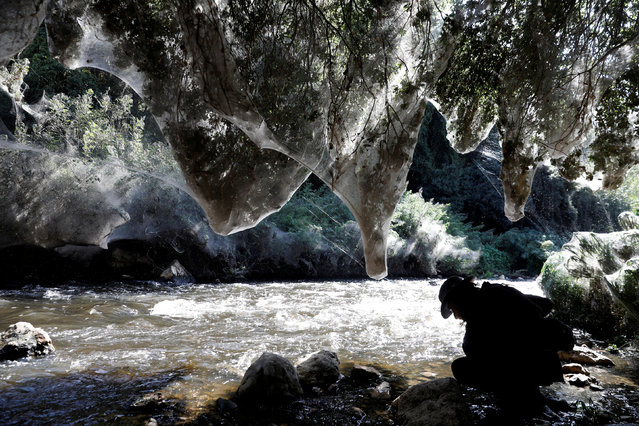
Igor Armicach, a doctoral student at Hebrew University's Arachnid Collection, looks onto giant spider webs, spun by long-jawed spiders (Tetragnatha), covering sections of the vegetation along the Soreq creek bank, near Jerusalem, Israel on November 7, 2017. (Photo by Ronen Zvulun/Reuters)
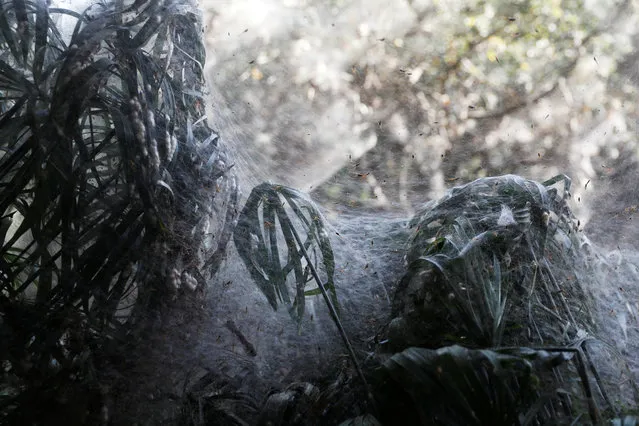
Giant spider webs, spun by long-jawed spiders (Tetragnatha), cover sections of the vegetation along the Soreq creek bank, near Jerusalem on November 7, 2017. Science and nature combined to create the unusual sight: the Soreq creek largely contains treated sewage full of nutrients that promote the proliferation of mosquitoes that serve as a source of food for spiders, which then reproduce in multitudes. (Photo by Ronen Zvulun/Reuters)
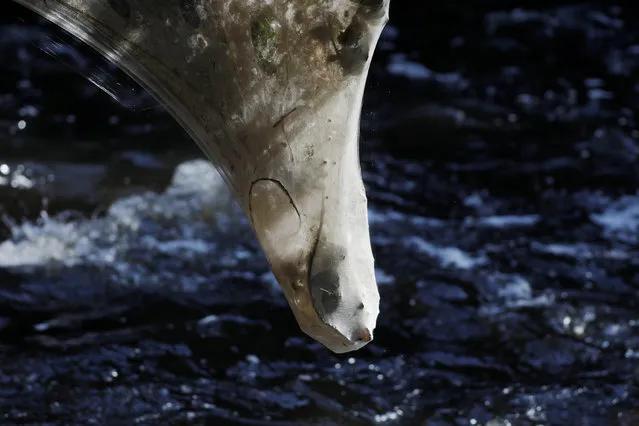
Giant spider webs, spun by long-jawed spiders (Tetragnatha), cover sections of the vegetation along the Soreq creek bank, near Jerusalem on November 7, 2017. But while spider egg sacs and spiderlings are everywhere along the banks of the creek, the future is bleak. Colder temperatures will soon cause a drastic drop in the mosquito population that sustains the web-weavers. (Photo by Ronen Zvulun/Reuters)
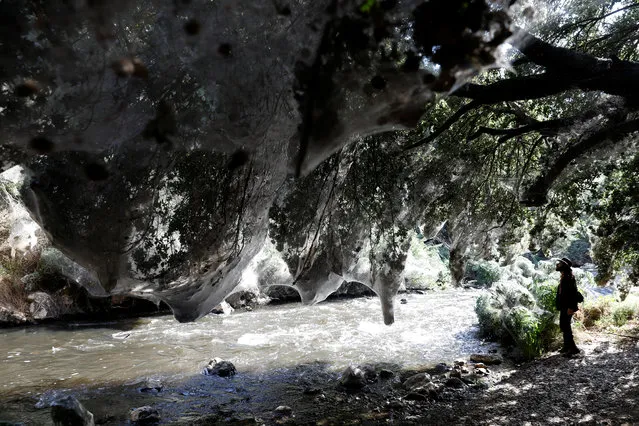
Igor Armicach, a doctoral student at Hebrew University's Archnid Collection, looks onto Giant spider webs, spun by long-jawed spiders (Tetragnatha), covering sections of the vegetation along the Soreq creek bank, near Jerusalem on November 7, 2017. (Photo by Ronen Zvulun/Reuters)
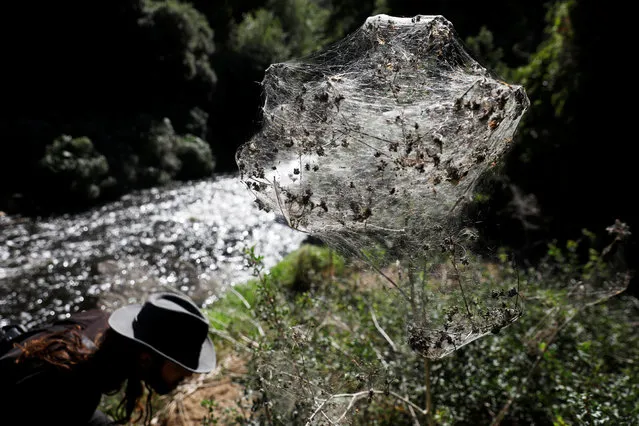
Igor Armicach, a doctoral student at Hebrew University's Archnid Collection looks onto giant spider webs, spun by long-jawed spiders (Tetragnatha), covering sections of the vegetation along the Soreq creek bank, near Jerusalem on November 7, 2017. (Photo by Ronen Zvulun/Reuters)
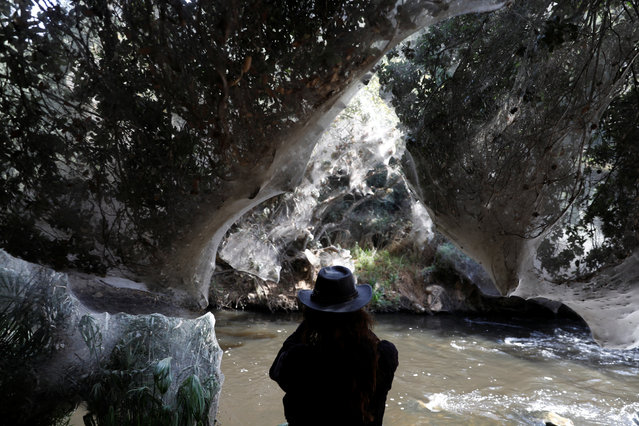
Igor Armicach, a doctoral student at Hebrew University's Archnid Collection, looks onto giant spider webs, spun by long-jawed spiders (Tetragnatha), covering sections of the vegetation along the Soreq creek bank, near Jerusalem on November 7, 2017. (Photo by Ronen Zvulun/Reuters)
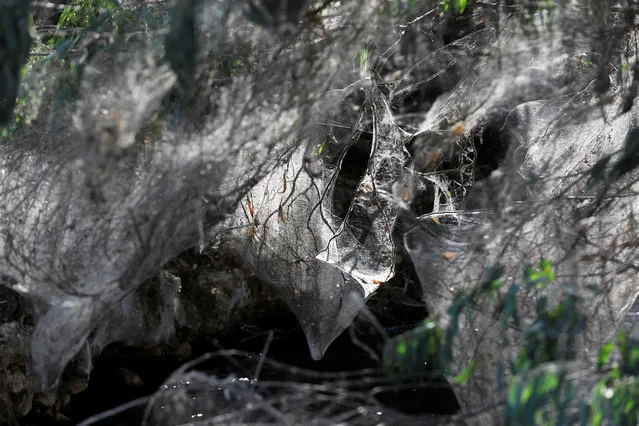
Giant spider webs, spun by long-jawed spiders (Tetragnatha), cover sections of the vegetation along the Soreq creek bank, near Jerusalem on November 7, 2017. (Photo by Ronen Zvulun/Reuters)
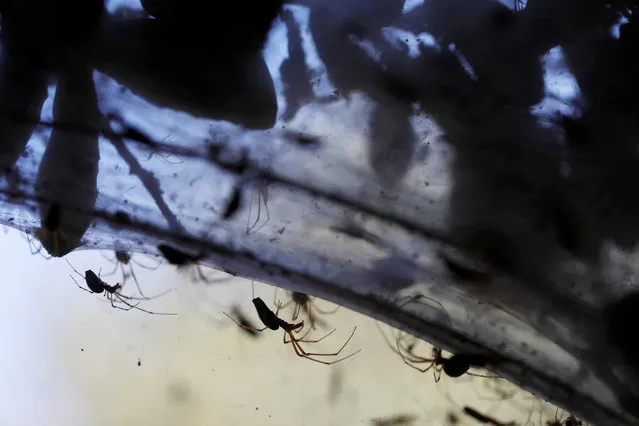
Long-jawed spiders (Tetragnatha) weave giant spider webs over sections of the vegetation along the Soreq creek bank, near Jerusalem on November 7, 2017. (Photo by Ronen Zvulun/Reuters)
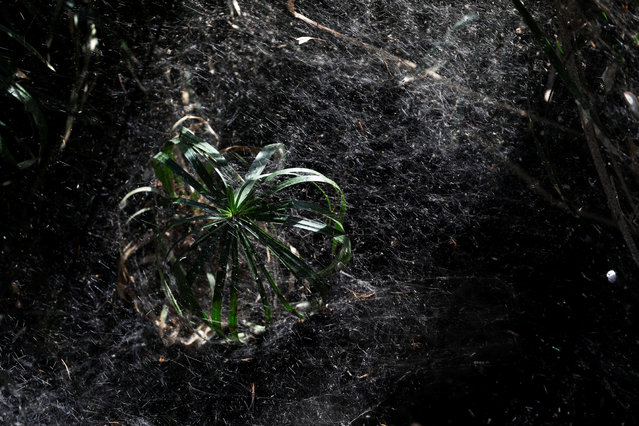
Giant spider webs, spun by long-jawed spiders (Tetragnatha), cover sections of the vegetation along the Soreq creek bank, near Jerusalem on November 7, 2017. (Photo by Ronen Zvulun/Reuters)
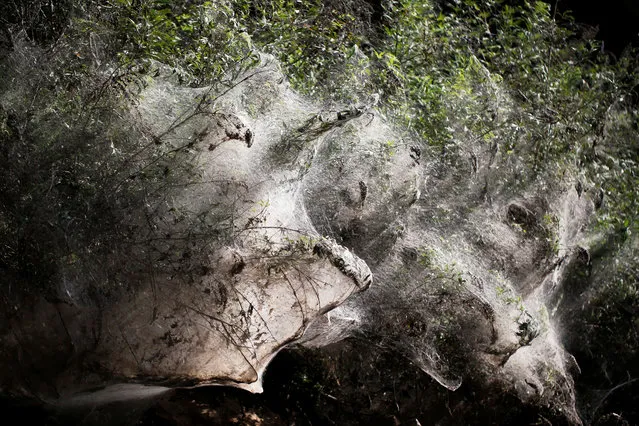
Giant spider webs, spun by long-jawed spiders (Tetragnatha), cover sections of the vegetation along the Soreq creek bank, near Jerusalem on November 7, 2017. (Photo by Ronen Zvulun/Reuters)
08 Nov 2017 08:56:00,
post received
0 comments
